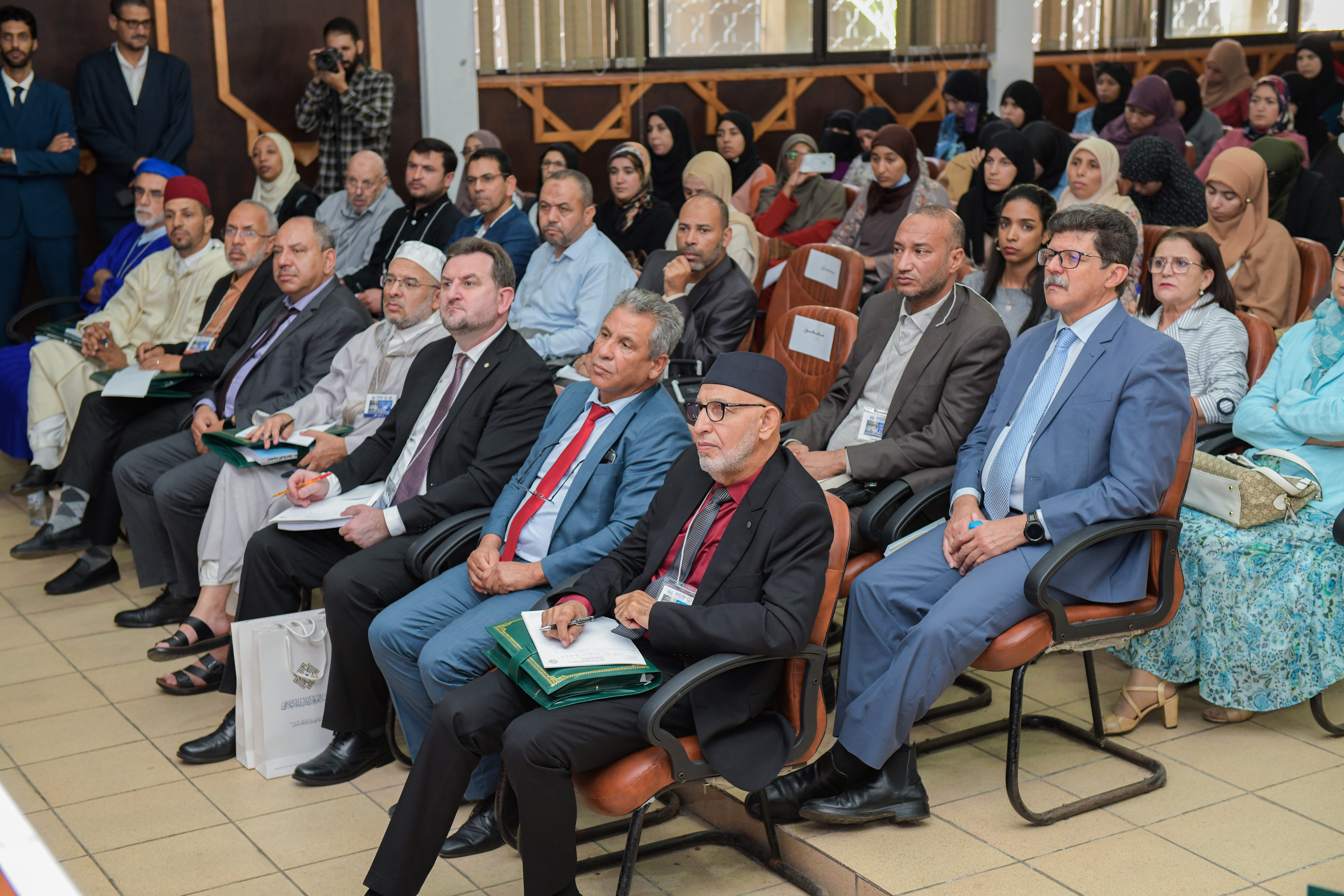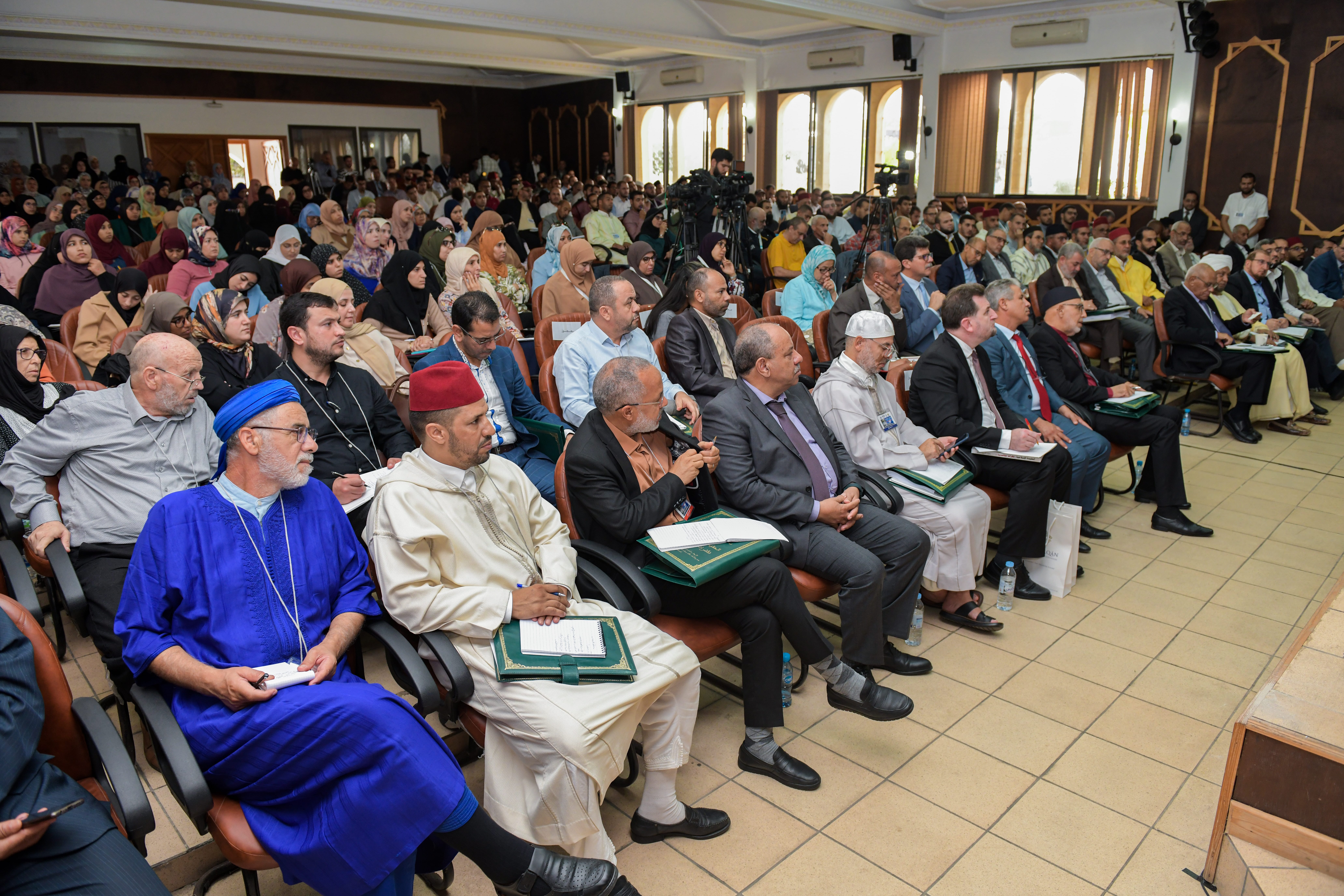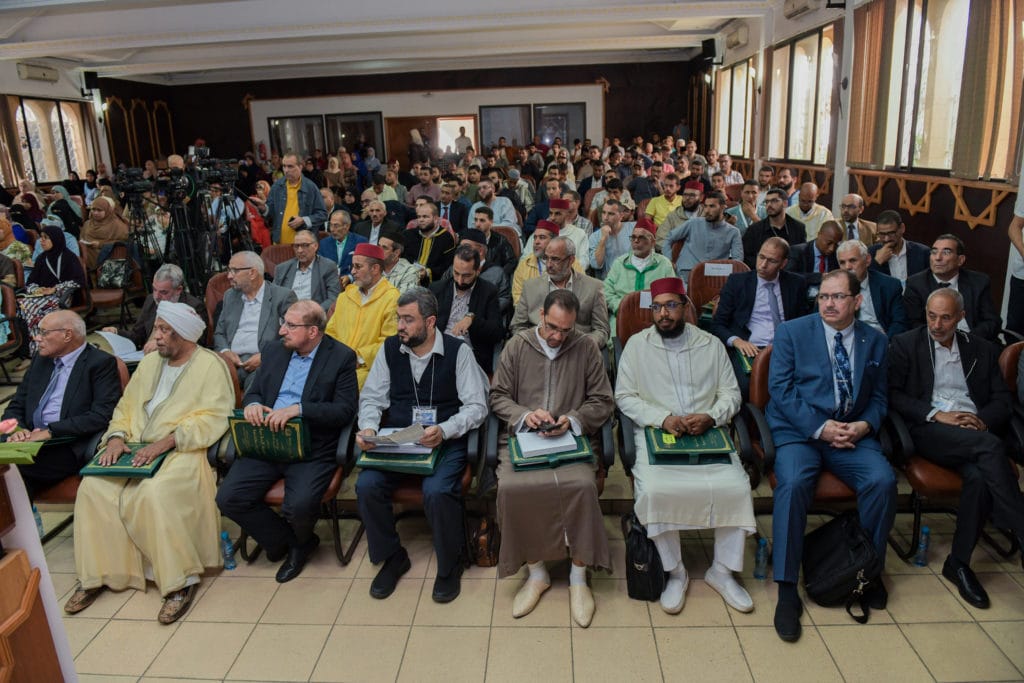Lecture by Professor Mustapha Ben Hamza
The Centre for the Study of the Philosophy of Islamic Law at Al-Furqān Islamic Heritage Foundation, the Faculty of Letters & Humanities in Mohammedia, the Research and Studies Laboratory in Islamic Sciences of the same Faculty, and the Maqasid Research & Studies Centre (Rabat), on 2 November 2022CE (7 Rabī‘ al-Awwal 1444AH), organised a scientific lecture delivered by the esteemed erudite scholar, Dr Mustapha Benhamza, titled “Logic of Faith”, in the environs of the Faculty of Letters & Humanities in Mohammedia, Morocco, inaugurating the Scientific Course, “Islamic creed: Maqāṣid Perspectives (1)”.

The erudite scholar, Dr Mustapha Benhamza, emphasised in his lecture that the topic of creed deserved our gathering around it, as it is subject to huge confusion. He noted that our religious institutions had been negligent in the aspect of creed; indeed, we do not see many studies on the subject of creed, only generalities. He explained that most behavioural and political deviances originate from a lack of knowledge of the facts of this creed.
The lecturer addressed the question of faith in respect of lexical sense, and also whether it is tied to actions, or it is merely to believe, while actions form no part. He added that if we do not treat such ambiguity, then the dysfunctions will persist. He invited Al-Furqān Foundation and its partners to examine the mistakes and dysfunctions, in which people fall; these are related to creed.
He then paused to elucidate the first objective requiring attention, namely working to preserve faith, before speaking of effects. Efforts must be directed at the project to eradicate faith. He pointed out that some Europeans have written about the demise of faith; indeed, they are already engaged in another project, which is to propagate atheism (ilḥād);this potent project requires thinking on how to protect our offspring from its peril. This is to be treated through the logic of knowledge, because knowledge is power, while atheism has nothing as a basis.
He also presented some of the philosophical thought espoused by Westerners, where they had disposed of the Bible. He blamed those who wished the religious text to be read using the Western interpretative lens, allowing one to say what one wishes of the text. He quoted the scholars’ statement: words are bastions of lexical sense; words are bound by their semantics, and our scholars have dedicated much effort in the exhaustive scrutiny of semantic, whether linguistic, figurative, or customary. He then addressed another step that they proposed, namely death of the author. Yet, the Quranic text is from Allāh, and Allāh is the Ever-Living and does not die.


In the context of speaking about modernism, which he said is a position vis-a vis religion, namely people ridding themselves of all authority over them, religious or otherwise. He then spoke of Nietzsche’s life given that he is one of the atheist philosophers.
He emphasised that faith is the opposite of atheism. Indeed, when we believe or teach our children faith in the creed lesson, we are actually saying to them: there is an irrefutable indicant (dalīl) for the existence of Allāh… This means teaching faith with its indicants; for example, Divine Attributes are reinforced through text and reasoning. In this way, we adopt faith with its indicants. In this context, he cited the book, “Dalā’il al-tawḥīd”, by Jamāl al-Dīn al-Qāsimī, and the works of Badī’ al-Zamān al-Nūrsī, due to their importance.
He elucidated the lexical sense of atheism, mentioning that it is not an idea that contributes to knowledge. Muslim scholars have discussed and defeated this atheism. In his words, if you evidence faith through its indicants, then logically you must evidence atheism through its indicants; however, the atheist’s indicants do not exist, as he depends only on negation. Knowledge that something does not exist is not knowledge of non-existence. Quoting Ibn Ḥazm, he said: you must affirm (ithbāt) that which the indicant affirms, and refute (ibṭāl) that which the indicant refutes. He concluded that atheism is not based on any indicant, rather it is based on delusion (al-wahm).


